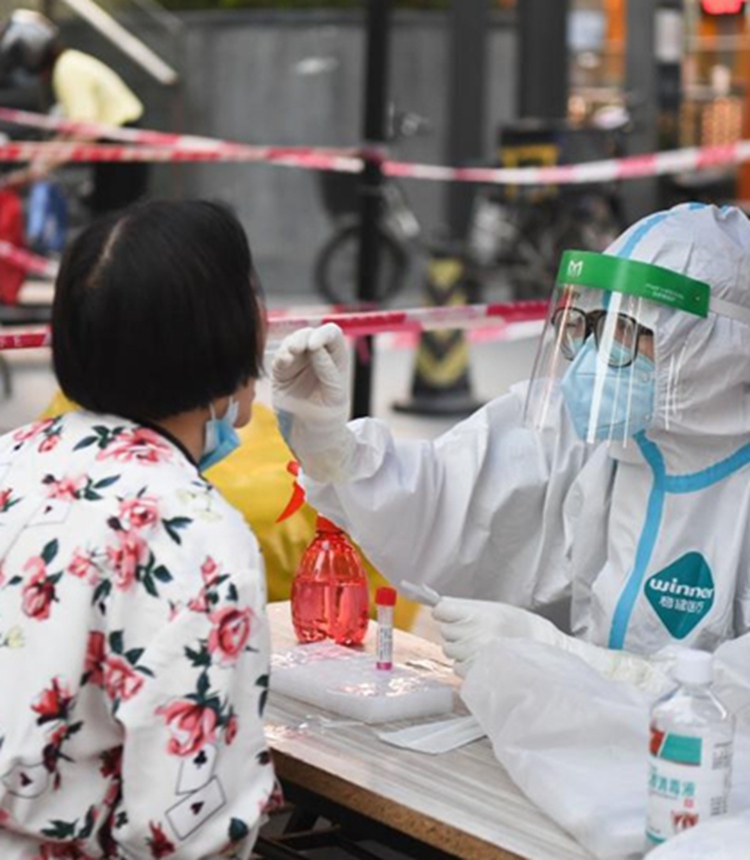COVID testing companies roll back businesses as more Chinese cities remove requirements for PCR results

A medical worker takes a swab sample from a resident for nucleic acid test at a community in Liwan district of Guangzhou, South China's Guangdong province. Photo: Xinhua
Medical care companies engaged in anti-pandemic nucleic acid testing that have made big money are rolling back their business, as China has moved to scale down massive PCR screening amid the government’s shift to optimize COVID response.
“It will not have a big impact on our business. We have done a good job in other testing businesses, and will strengthen them except for nucleic acid testing,” said Shanghai Lanwei Medical Laboratory, according to a report by thepaper.cn.
The company achieved an income worth 1.048 billion yuan ($150 million) in the third quarter, an increase of 108 percent year-on-year, and the net profit attributable to its parent company rose to 174 million yuan, up 119.5 percent on a yearly basis.
“Although COVID tests will gradually wind down, it will be accompanied by price reductions. Therefore, the company’s revenue and gross profit from those tests may decrease, and there is a risk of lower operating performance,” Lanwei said in its semi-annual report.
Guangzhou Daan Gene Co said that its business will not be affected this year. The impact waits to be seen until next year, depending on the adjustment of specific policies on COVID response.
At present, there are 109 publicly traded companies related to COVID testing. Total net profit of those companies in 2021 hit 74.098 billion yuan. Their profit in the first three quarters this year has exceeded that of 2021, data from Tonghuashun iFind showed.
“In fact, relevant listed companies themselves are clear that nucleic acid testing is only a short-term business born out of anti-virus policies and is not sustainable,” an investment manager in the medical care sector, who asked to remain anonymous, told the Global Times.
With the new adjustment of the epidemic prevention and control measures and the introduction of COVID-19 treatment drugs, the epidemic will be effectively controlled, he said.
At least a dozen cities across China have recently adjusted and optimized anti-virus measures, including scrapping the requirement for frequent mass nucleic acid tests and mandatory COVID-19 test results for taking public transportation system.
Beijing removed COVID testing requirements for shopping malls, supermarkets, office buildings, according to the latest policies issued by the city’s epidemic prevention and control work group on Tuesday.
Meanwhile, negative nucleic acid testing results are not required for entering the terminals at Beijing Capital International Airport since Tuesday as long as registering with health codes and with normal temperature.
However, negative nucleic acid testing results within 48 hours are still needed when entering internet cafes, bars, chess rooms and other public facilities as well as catering venues and indoor gyms.
Shanghai announced on Monday that residents are no longer required to present negative PCR results to enter most public venues, including shopping malls, supermarkets, offices and residential compounds starting on Tuesday.
Passengers in Shanghai are no longer required to possess a negative nucleic acid test result when taking public transit, including buses and subways, or when entering outdoor public spaces.
Global Times
